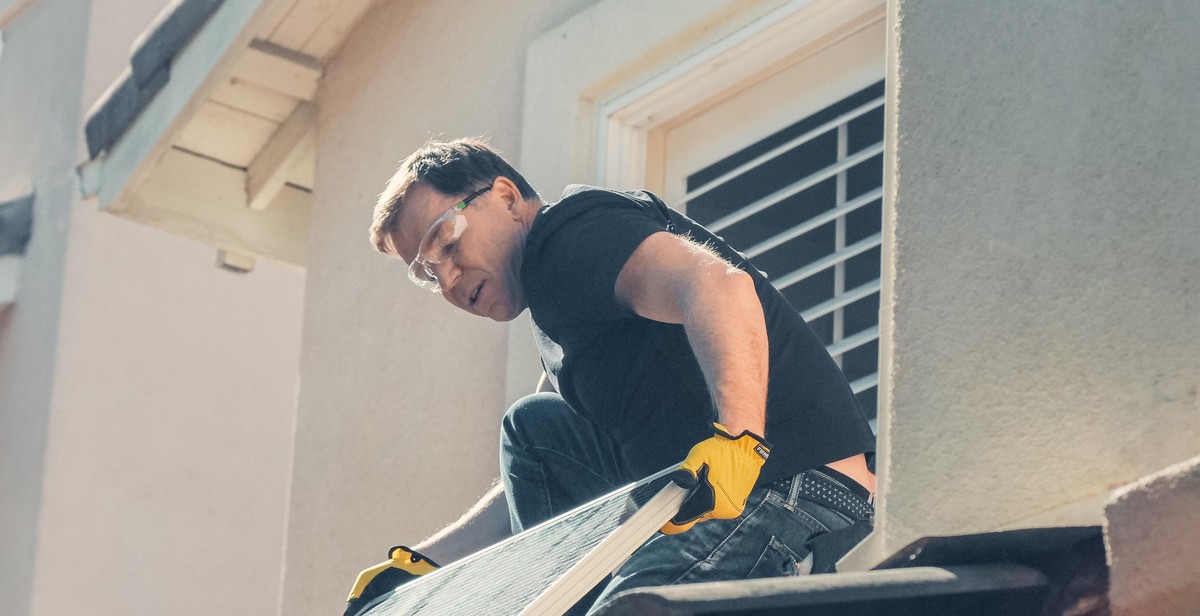Introduction
As the world continues to face the challenge of climate change, it is essential to take measures to reduce our carbon footprint. One way to do this is by making our homes more energy-efficient. Not only does this help the environment, but it also helps us save money on utility bills.
Why is energy efficiency important?
Reducing energy consumption in our homes is crucial for various reasons. Firstly, it helps to reduce the amount of greenhouse gases emitted into the atmosphere, which contributes to global warming. Secondly, it helps to conserve natural resources such as oil and gas. Finally, it helps to lower utility bills, which can be a significant expense for many homeowners.
How can you make your home more energy-efficient?
There are many ways to make your home more energy-efficient, from simple changes to more significant investments. Some of the most effective measures include improving insulation, upgrading to energy-efficient appliances, using programmable thermostats, and installing solar panels. Small changes like turning off lights and unplugging electronics when not in use can also make a significant difference in reducing energy consumption.
In this article, we will explore various ways to make your home more energy-efficient, including both small changes and significant investments. By implementing these measures, you can reduce your carbon footprint and save money on utility bills while creating a more comfortable living space.
Why Should You Make Your Home More Energy-Efficient?
Making your home more energy-efficient is a smart choice for several reasons. Not only does it help you reduce your energy bills, but it also helps you reduce your carbon footprint. Here are some reasons why you should consider making your home more energy-efficient:
Reduce Your Energy Bills
One of the primary reasons to make your home more energy-efficient is to reduce your energy bills. By using energy-efficient appliances and implementing energy-saving practices, you can significantly reduce your monthly energy bills. For instance, replacing your old incandescent light bulbs with LED bulbs can save you up to 75% on your lighting costs.
Similarly, upgrading your HVAC system to a more energy-efficient one can help you save a lot of money on your heating and cooling bills. Energy-efficient HVAC systems use less energy to maintain the same temperature, which can help you save up to 20% on your energy bills.
Reduce Your Carbon Footprint
Another reason to make your home more energy-efficient is to reduce your carbon footprint. Carbon footprint refers to the amount of greenhouse gases (such as carbon dioxide) that are emitted into the atmosphere as a result of your activities. By reducing your energy consumption, you can significantly reduce your carbon footprint.
Energy-efficient homes use less energy to maintain the same level of comfort, which means they emit fewer greenhouse gases. This can help you do your part in mitigating climate change and protecting the environment.
Additionally, some energy-efficient upgrades may even qualify for tax incentives or rebates, which can help offset the cost of the upgrades. This means that you not only save money on your energy bills but also get some financial benefits from making your home more energy-efficient.
Conclusion
In conclusion, making your home more energy-efficient is a smart choice for several reasons. It can help you save money on your energy bills, reduce your carbon footprint, and even qualify for tax incentives or rebates. So, if you haven’t already, consider implementing energy-efficient upgrades in your home today.

Ways to Make Your Home Energy-Efficient
Making your home more energy-efficient can not only save you money on your energy bills but also reduce your carbon footprint. Here are some ways to make your home more energy-efficient:
Insulate Your Home
Insulating your home is one of the best ways to make it more energy-efficient. Proper insulation helps keep your home warm in the winter and cool in the summer by preventing air leaks and reducing heat transfer. Insulating your walls, attic, and basement can significantly reduce your energy consumption and save you money on your energy bills.
Upgrade Your Windows and Doors
Old and drafty windows and doors can significantly increase your energy bills by letting in outside air and allowing heat to escape from your home. Upgrading to energy-efficient windows and doors can help you reduce your energy consumption and save money on your bills. Look for windows and doors with a high Energy Star rating and consider adding weatherstripping to further reduce air leaks.
Install Energy-Efficient Appliances
Appliances such as refrigerators, washing machines, and dishwashers consume a lot of energy. Upgrading to energy-efficient appliances can help you reduce your energy consumption and save money on your bills. Look for appliances with a high Energy Star rating and consider replacing old appliances with newer, more efficient models.
Use Energy-Efficient Lighting
Lighting can also consume a lot of energy in your home. Switching to energy-efficient lighting such as LED bulbs can help you reduce your energy consumption and save money on your bills. LED bulbs last longer and use less energy than traditional incandescent bulbs, making them a great choice for energy-efficient lighting.
By implementing these energy-efficient measures, you can significantly reduce your energy consumption and save money on your energy bills. Not only will you be benefiting your wallet, but you will also be reducing your carbon footprint and helping the environment.

The Benefits of Making Your Home More Energy-Efficient
Making your home more energy-efficient has numerous benefits that go beyond just reducing your carbon footprint. Here are three key reasons why you should consider making your home more energy-efficient:
Save Money on Energy Bills
One of the most significant benefits of making your home more energy-efficient is the potential savings on your energy bills. By reducing the amount of energy your home uses, you can significantly cut down on your monthly utility bills. Simple changes like upgrading to energy-efficient light bulbs, sealing air leaks, and using a programmable thermostat can make a big difference in your energy usage and ultimately save you hundreds of dollars per year.
Increase the Value of Your Home
Investing in energy-efficient upgrades can also increase the value of your home. According to the National Association of Home Builders, energy-efficient features such as energy-efficient windows, appliances, and insulation can increase the value of a home by up to 9%. This means that not only will you be saving money on your energy bills, but you’ll also be increasing the resale value of your home.
Improve Indoor Comfort
Making your home more energy-efficient can also improve your indoor comfort. By sealing air leaks and adding insulation, you can prevent drafts and keep your home at a more consistent temperature. This means you’ll be more comfortable year-round, and you won’t have to rely on your heating and cooling systems as much, which can lead to additional energy savings.
Overall, making your home more energy-efficient is a smart investment that can save you money, increase the value of your home, and improve your indoor comfort. So why not start making some simple changes today?
Conclusion
By implementing the energy-efficient measures discussed in this article, you can significantly reduce your home’s energy consumption and save money on your utility bills. It’s important to remember that energy efficiency is not a one-time fix, but rather an ongoing effort that requires regular maintenance and updates.
Recap
- Start by conducting an energy audit to identify areas where you can make improvements.
- Seal air leaks around doors and windows to prevent drafts and improve insulation.
- Upgrade to energy-efficient appliances and lighting to reduce energy consumption.
- Install a programmable thermostat to regulate heating and cooling when you’re away from home.
- Consider investing in renewable energy sources, such as solar panels, to further reduce your dependence on non-renewable energy.
Benefits
Not only will these energy-efficient measures save you money on your utility bills, but they also have positive environmental impacts by reducing your carbon footprint and conserving natural resources. Additionally, a more energy-efficient home can improve indoor air quality and overall comfort.
Final Thoughts
By taking steps to make your home more energy-efficient, you’re not only saving money and reducing your environmental impact, but you’re also making your home a more comfortable and healthy place to live. Start small and continue to make improvements over time, and you’ll see the benefits in both your wallet and the planet.
